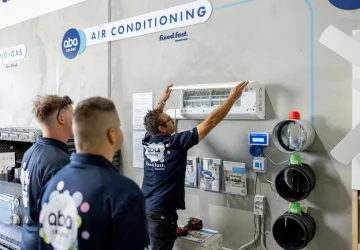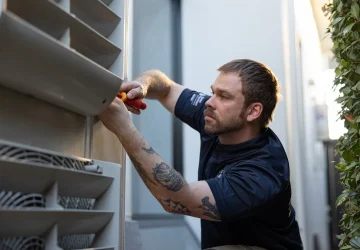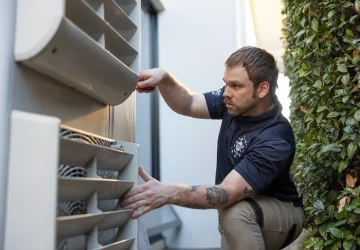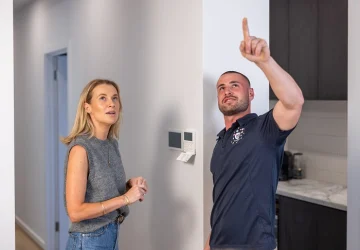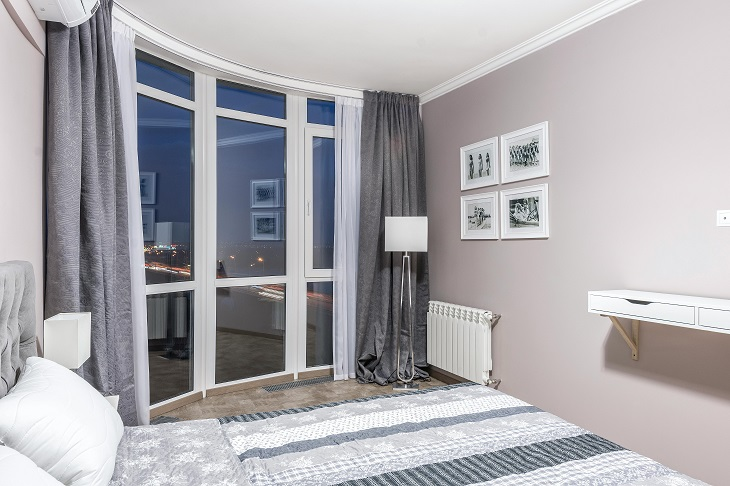
Are Convection Heaters Energy Efficient? Find Out Here!
“Convection heaters gradually warm the air and are suitable for small rooms and short-term use. However, these become less efficient for larger spaces and are not suitable for long-term use. Also, convection heaters consume more energy than advanced heating systems like reverse-cycle air conditioners.”
Convection heaters contain a heating element that warms the air around them, which then circulates naturally throughout the room. This method of heat distribution works great for smaller and enclosed spaces. On the bright side, convection heaters are easy on your pocket.
If you need expert advice, then call ABA Air Conditioning; we will help you find the best heating system according to your home’s environment. Let’s explore together.
What you’ll learn in this blog:
- How convection heaters work and when they’re most effective
- The energy usage and limitations of convection heaters in larger rooms
- Long-term cost comparison with reverse-cycle air conditioning systems
- Pros and cons of using convection heaters for home heating
- Better energy-efficient alternatives for reducing heating bills
Are Convection Heaters Energy Efficient?
Energy Use and Wattage of Convection Heater
Usually, convection heaters operate with wattage ranging from 500 to 2,000 watts, depending on the size of the unit and the space it’s supposed to heat.
These work great for smaller rooms, but when you operate a convection heater in a larger area and for extended hours, these lead to high electricity consumption.
Room Size Limitations
As we discussed before, convection heaters are ideal for heating smaller and enclosed spaces. Since these don’t contain a fan, it takes time for the heat to circulate through a larger room.
Due to this limitation, convection heaters are not a good choice for larger rooms.
Cost Over Time vs. Upfront Affordability
Although convection heaters are affordable upfront compared to split systems and reverse cycle air conditioning, these are not the most cost-effective solutions in the long run.
Like if you use these constantly during winter months, the energy costs will accumulate quickly.
Efficiency Compared to Reverse Cycle AC
Here, reverse cycle AC will take the lead, as these systems are designed to maintain a consistent temperature with minimal energy usage.
So, if you are looking for energy-efficient space heaters and overall better efficiency, then investing in a reverse cycle air conditioning system will be a better choice.
| Pros of Convection Heater | Cons of Convection Heater |
| Quiet operation | Slow to heat larger rooms |
| Low installation cost | Less efficient than reverse cycle systems |
| Safer than radiant heaters | |
| No fan noise or blowing dust |
Best Energy-Efficient Alternatives to Convection Heaters
Convection heaters are an excellent choice for short-term use, but if you want to reduce your heating cost and save energy in the long term, here are a few alternatives:
- Reverse cycle split systems
- Ducted heating with zoning
- Electric panel heaters with thermostats
Why ABA Air Conditioning Service is the Best?
If you are still unsure about whether convection heaters will suit your needs or not, then contact us today and let our ABA Experts handle the rest! We are the trusted service providers of Adelaide, and here are our distinctive traits:
- Upfront pricing, no hidden charges
- Licensed and Trusted
- Flawless solutions
- Available 24/7
Our experts provide sustainable and budget-friendly heating solutions, so why are you waiting for them?
FAQ’s
- Do convection heaters save money?
Convection heaters are affordable upfront and are a good option for short and closed spaces. However, these are less efficient than reverse-cycle air conditioning systems and increase energy costs in the long run.
- Do convection heaters use a lot of energy?
Yes, convection heaters use a significant amount of energy if used for longer periods. However, these are good for heating small spaces.

